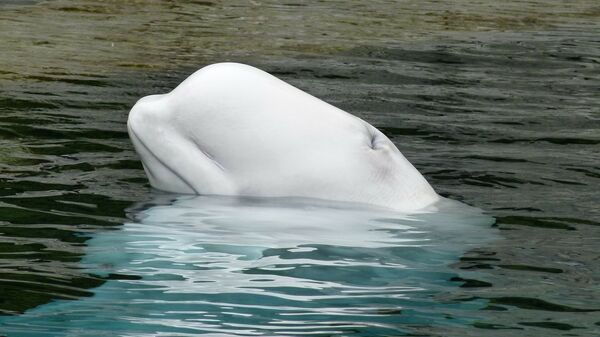"The operation to release marine mammals into the natural habitat has been completed. All remaining Beluga whales were released in the Bay of Uspeniya Lazovsky district of Primorsky Territory on Sunday November 10," the statement read.
Eighteen belugas were released from the Professor Kaganovsky vessel and 13 from the Zodiac research ship earlier on Sunday.
The spokesman for VNIRO, Alexey Smorodov, told Sputnik that despite the complexity of organizing the operation, everything went well thanks to the professionalism, colossal efforts and responsible attitude of all participants of the mission.
In the meantime, a group of observers from environmental and public organizations confirmed that all the remaining beluga whales were released, Oganes Targulyan, a Greenpeace Russia representative, told Sputnik.
"We cannot evaluate the health of belugas, the condition of their skin. In general, in our opinion, all the belugas were released. Thank God that the animals were free. We hope that the 'whale jail' will not be repeated again, that a ban will be imposed on catching marine animals for cultural and educational purposes," Targulyan, who was present at the moment of the release, said.
In October 2018, the "whale jail" in Russia's Srednyaya Bay made headlines after Greenpeace claimed that a group of endangered whales was being held there in preparation for being smuggled to China. A probe was subsequently opened into potential illegal fishing of aquatic animals and animal abuse. The investigation found a group of more than 100 orcas and belugas trapped in a sea enclosure in dire condition.
Russian President Vladimir Putin ordered that the case be reviewed by the relevant state agencies. A local court ruled that the sea mammals had been caught illegally, and the companies responsible for the violation were reportedly fined a total of 150 million rubles ($2.4 million). In late September, Russian Environment Minister Dmitry Kobylkin said that the ministry had no plans to legalize the capture of orcas and belugas in Russian waters in 2020.
The trapped orcas and belugas have been steadily released since June. They have been equipped with trackers that will enable scientists to trace their movement and collect data on their behavior in the wild.


